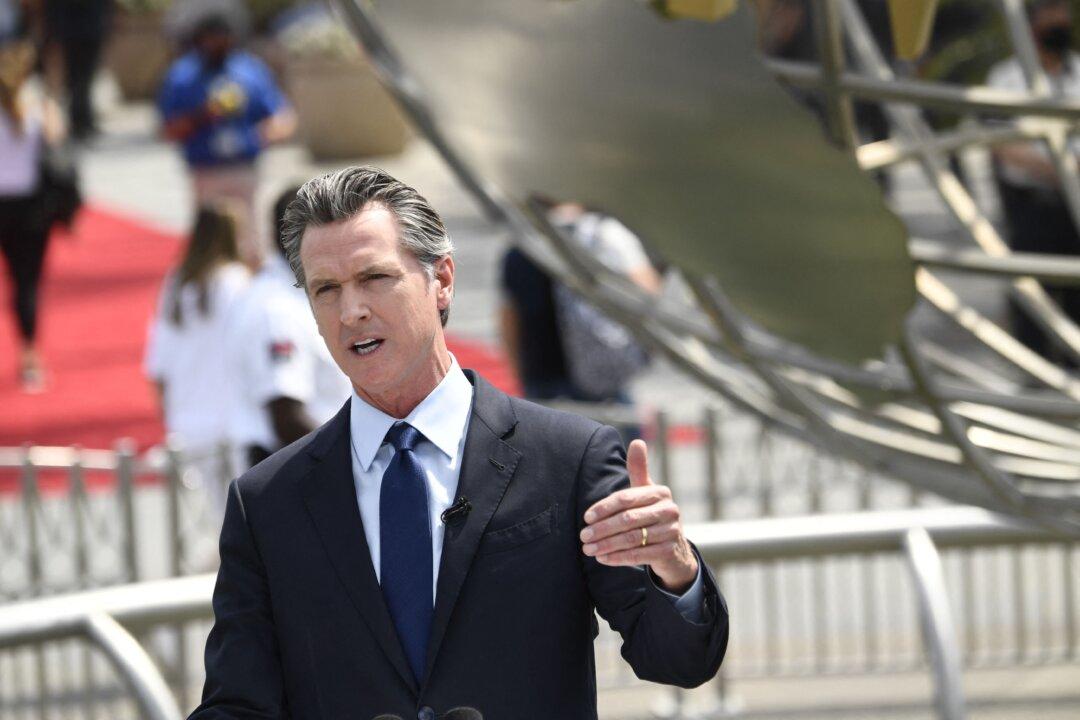Key backers of the recall election against California Gov. Gavin Newsom have filed a lawsuit to prevent the Democrat governor from framing the contest as a Trump-aligned Republican power grab in an official voter information guide that will be distributed publicly.
Orrin Heatlie, the lead organizer of the recall campaign, and Mike Netter, a board member of the recall committee, are the plaintiffs in a lawsuit filed in Sacramento Superior Court. The activists call for each use of the word “Republican” and “Trump” to be stricken from Newsom’s so-called “recall argument,” the governor’s official response to the special election that will be included in the voter guide sent out ahead of the Sept. 14 vote.





